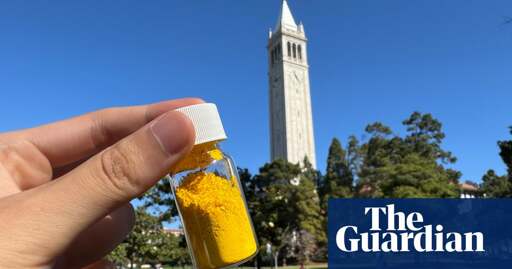- cross-posted to:
- futurology@futurology.today
- cross-posted to:
- futurology@futurology.today
Just half a pound of the stuff may remove as much carbon dioxide as a tree can, according to early tests. Once the carbon is absorbed by the powder, it can be released into safe storage or be used in industrial processes, like carbonizing drinks.
“This really addresses a major problem in the tech field, and it gives an opportunity now for us to scale it up and start using it,” says Omar Yaghi, a chemist at the University of California, Berkeley. It’s not the first material to absorb carbon, but “it’s a quantum leap ahead [of other compounds] in terms of the durability of the material”.



So … the tiniest possible step forward?
No no, the tiniest possible leap (practically equivalent to tiniest possible step except much more elaborate and important sounding)
There was an old tv show called quantum leap where the main character jumped through time. I assume this is what they are referring to, though no one under 45 years old will have heard of this tv show.
I’m old enough to remember the show 👴 but the reference is (also) that people frequently use “quantum” to mean something large and impressive, like in this headline, when originally it means a shift in quantum states at a molecular or atomic level — i.e., teeny tiny and hardly noticeable.
https://www.merriam-webster.com/dictionary/quantum leap